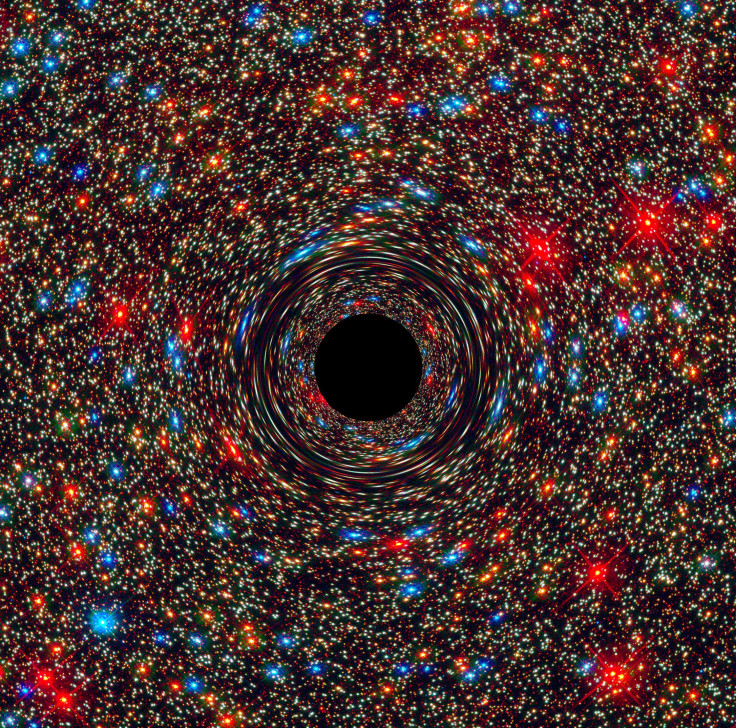Black Holes Evaporation: Evidence Found For Hawking Radiation

Conventional understanding of black holes tells us that nothing, not even light, escapes their tremendous gravitational pull, thus earning them their name. But in the 1970s, Stephen Hawking proposed that black holes can radiate quantum particles that would lead to their eventual evaporation. And now, a scientist in Israel claims to have observed the Hawking radiation.
According to Hawking, his eponymous radiation takes place as a consequence of quantum phenomena near the black hole’s event horizon. An explainer by John Baez and Ilja Schmelzer at the University of California, Riverside, puts it in simple words.
“Virtual particle pairs are constantly being created near the horizon of the black hole, as they are everywhere. Normally, they are created as a particle-antiparticle pair and they quickly annihilate each other. But near the horizon of a black hole, it's possible for one to fall in before the annihilation can happen, in which case the other one escapes as Hawking radiation.”
All black holes we can observe are of a size and mass that is pulling in a lot of hot gases, and their radiation far outshines the radiation from the black hole itself, making it close to impossible to observe Hawking radiation in a real black hole. To overcome that problem, Jeff Steinhauer, an experimental physicist at the Technion-Israel Institute of Technology in Haifa, created a black hole analogue and he noticed it seemed “to emit such Hawking radiation on its own, from quantum fluctuations that emerge from its experimental set-up.”
In a paper published Monday in the journal Nature Physics, Steinhauer says: “We observe spontaneous Hawking radiation, stimulated by quantum vacuum fluctuations, emanating from an analogue black hole in an atomic Bose–Einstein condensate. Correlations are observed between the Hawking particles outside the black hole and the partner particles inside.”
His analogous set-up used sound waves instead of light and phonons instead of photons. And other scientists have expressed both admiration for and caution toward the results.
Silke Weinfurtner, a theoretical and experimental physicist at the University of Nottingham in the United Kingdom, told Nature: “This experiment, if all statements hold, is really amazing. It doesn’t prove that Hawking radiation exists around astrophysical black holes.”
Pointing out another inherent shortcoming of an analogue black hole — which does not evaporate — Leonard Susskind, a theoretical physicist at Stanford University in California, said: “I don’t believe it will illuminate the so-called information paradox.”
The information paradox also derives from Hawking’s prediction that says all the information about all the objects inside a black hole will be destroyed along with the disappearance of the black hole, which is contrary to the conventional understanding that the total amount of information in the universe remains constant.
© Copyright IBTimes 2024. All rights reserved.




















